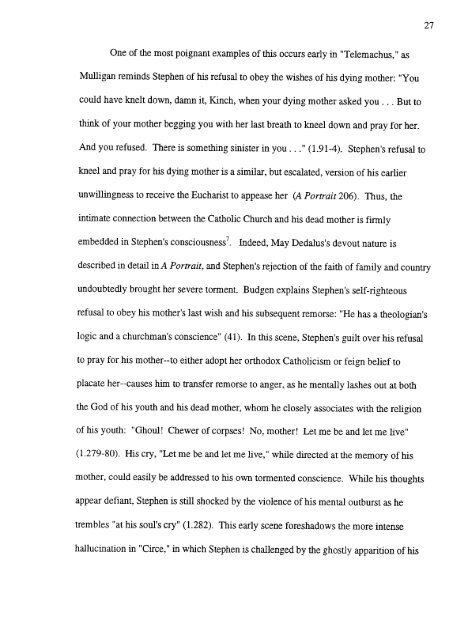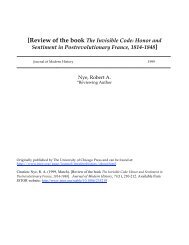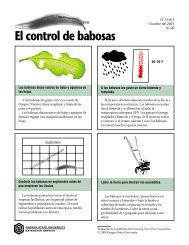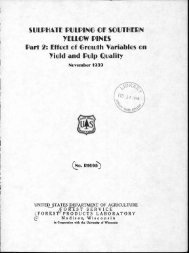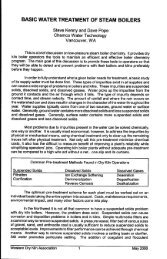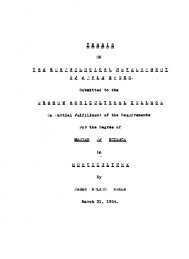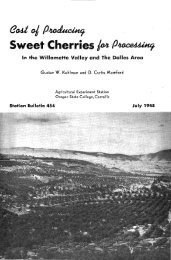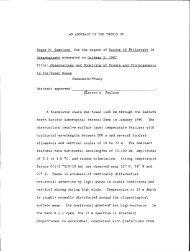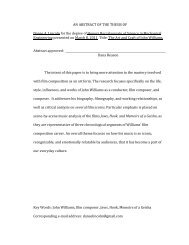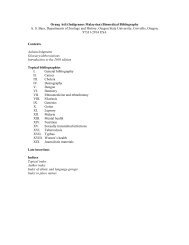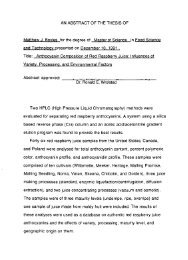Faubourg Saint Patrice - ScholarsArchive at Oregon State University
Faubourg Saint Patrice - ScholarsArchive at Oregon State University
Faubourg Saint Patrice - ScholarsArchive at Oregon State University
You also want an ePaper? Increase the reach of your titles
YUMPU automatically turns print PDFs into web optimized ePapers that Google loves.
One of the most poignant examples of this occurs early in "Telemachus," as<br />
Mulligan reminds Stephen of his refusal to obey the wishes of his dying mother: "You<br />
could have knelt down, damn it, Kinch, when your dying mother asked you . . . But to<br />
think of your mother begging you with her last bre<strong>at</strong>h to kneel down and pray for her.<br />
And you refused. There is something sinister in you . . ." (1.91-4). Stephen's refusal to<br />
kneel and pray for his dying mother is a similar, but escal<strong>at</strong>ed, version of his earlier<br />
unwillingness to receive the Eucharist to appease her (A Portrait 206). Thus, the<br />
intim<strong>at</strong>e connection between the C<strong>at</strong>holic Church and his dead mother is firmly<br />
embedded in Stephen's consciousness'. Indeed, May Dedalus's devout n<strong>at</strong>ure is<br />
described in detail in A Portrait, and Stephen's rejection of the faith of family and country<br />
undoubtedly brought her severe torment. Budgen explains Stephen's self-righteous<br />
refusal to obey his mother's last wish and his subsequent remorse: "He has a theologian's<br />
logic and a churchman's conscience" (41). In this scene, Stephen's guilt over his refusal<br />
to pray for his mother--to either adopt her orthodox C<strong>at</strong>holicism or feign belief to<br />
plac<strong>at</strong>e her--causes him to transfer remorse to anger, as he mentally lashes out <strong>at</strong> both<br />
the God of his youth and his dead mother, whom he closely associ<strong>at</strong>es with the religion<br />
of his youth: "Ghoul! Chewer of corpses! No, mother! Let me be and let me live"<br />
(1.279-80). His cry, "Let me be and let me live," while directed <strong>at</strong> the memory of his<br />
mother, could easily be addressed to his own tormented conscience. While his thoughts<br />
appear defiant, Stephen is still shocked by the violence of his mental outburst as he<br />
trembles "<strong>at</strong> his soul's cry" (1.282). This early scene foreshadows the more intense<br />
hallucin<strong>at</strong>ion in "Circe," in which Stephen is challenged by the ghostly apparition of his<br />
27


